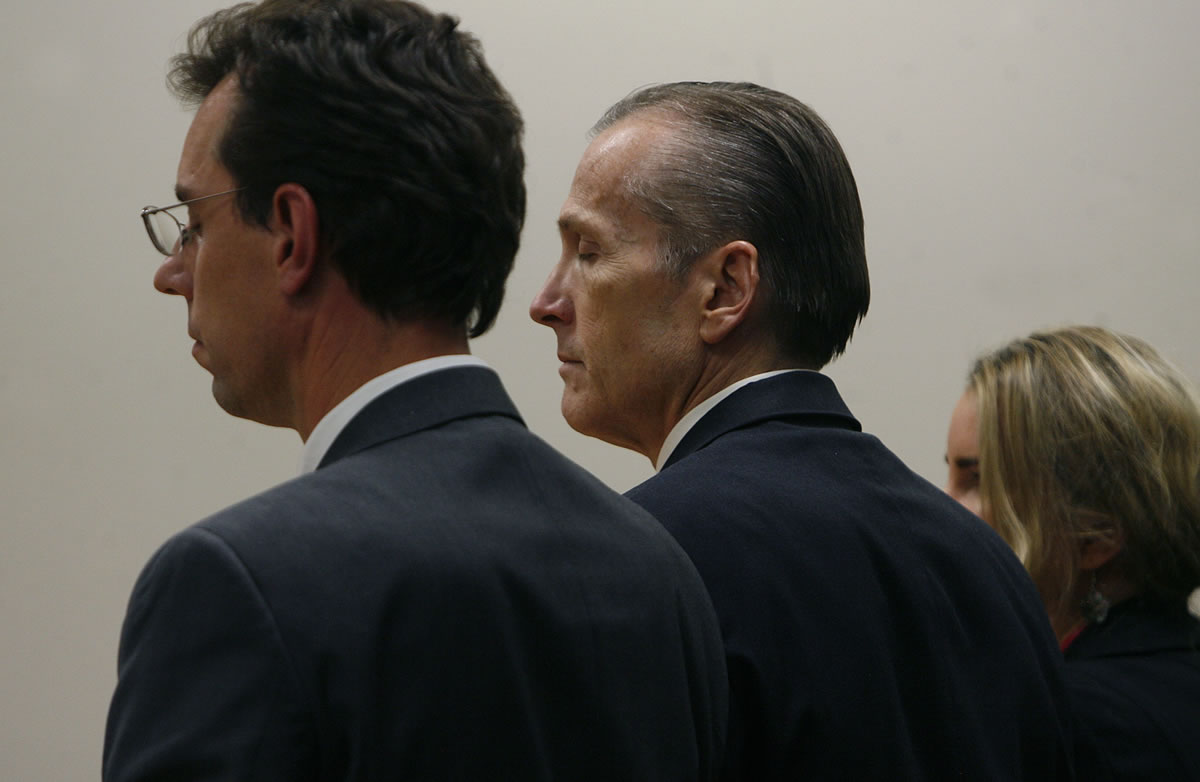PROVO, Utah — The conviction of a Utah doctor in the murder of his wife was the culmination of a yearslong pursuit of justice by the family of the victim.
The daughters and sisters of Michele MacNeill hounded authorities to investigate Martin MacNeill amid an initial finding that the 2007 death was natural, possibly from heart disease. They attended court hearings and sat in the front row of the courtroom at a 2012 preliminary hearing holding photos of Michele MacNeill. They were in Provo again throughout this three-week trial, listening intently. Several of them testified.
When the verdict was read, they let out a loud yelp before dissolving in tears as the jury delivered its verdict to the tense, packed courtroom.
“We’re just so happy he can’t hurt anyone else,” said Alexis Somers, one of his older daughters and his main protagonist. “We miss our mom; we’ll never see her again. But that courtroom was full of so many people who loved her.”
The jury convicted MacNeill of first-degree murder about 12 hours after getting the case, returning the verdict after 1 a.m. He faces 15 years to life in prison when he is sentenced Jan. 7. He also was found guilty of obstruction of justice, which could add one to 15 years.
MacNeill, 57, showed little emotion when the verdict was read. He hugged his lawyer and said, “It’s OK.” Deputies led him back to Utah County jail.
Randy Spencer, one of his lawyers, said he was disappointed before declining further comment.
The Utah doctor was convicted after prosecutors built a case based largely on circumstantial evidence. He was accused of hounding his 50-year-old wife to get a face-lift, pumping her full of drugs and helping her into a bathtub. Prosecutors contend that MacNeill was “swapping” his wife for a new life with a mistress without having to go through a divorce.
Gypsy Willis’ testimony was the highlight of the three-week trial. MacNeill introduced her as a nanny within weeks of his wife’s death, but his older daughters quickly recognized her as his secret lover. They said her mother had been arguing with her husband over the affair.
The daughters went to work uncovering what they call their father’s secret life. They dogged county officials to open an investigation that local police never conducted. It wasn’t until MacNeill’s release in July 2012 from a federal prison in Texas on charges of fraud that Utah prosecutors moved to file charges of murder and obstruction of justice.
Willis also served a federal sentence for using the identity of one of MacNeill’s adopted daughters to escape a debt-heavy history. That daughter had been sent back to Ukraine, supposedly only for a summer.
For a time, MacNeill’s only family defender was his only son. Damian, a 24-year-old law student, committed suicide in January 2010, according to his sisters, who have said he was haunted by their mother’s death.
The case shocked the Mormon community of Pleasant Grove, 35 miles south of Salt Lake City, and captured national attention because the defendant was a wealthy doctor and a lawyer, a father of eight in a picture-perfect family and former bishop in his local congregation of The Church of Jesus Christ of Latter-day Saints.
Defense lawyers contend Michele MacNeill died of natural causes. They believe she had a heart attack and fell headfirst into the tub and noted the autopsy showed she had an enlarged heart, a narrowing of the heart arteries and liver and kidney deterioration.
“There’s simply no proof” of homicide, Spencer said. “The prosecution has presented to you their cherry-picked portion of the evidence.”
He called the testimony of a handful of prison inmates angling for early release doubtful. The men who spent time behind bars with the doctor testified he had acknowledged killing his wife — or suggested that investigators could never prove he did it.



